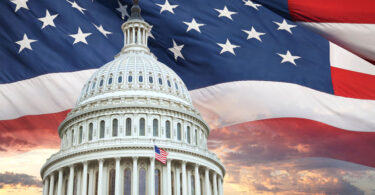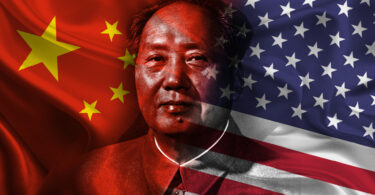“Rasmussen’s identification of the elite 1 percent begins to explain the depth of the tension between most Americans and the tiny group of elitists who control what Vladimir Lenin called “the commanding heights,” the elements of power which control the rest.”
By Newt Gingrich | Gingrich 360
Scott Rasmussen has done America an enormous service. He and his team have identified the driving forces behind the destructive radicalism which is pushing us into a cultural civil war.
While doing their two weekly national surveys, Rasmussen and his team noticed an anomaly. Out of every 1,000 or so respondents, there would always be three or four who were far more radical than everyone else. After several months of finding these unusual responses, Rasmussen realized they all shared three characteristics.
The radical responses came from people who had graduate degrees (not just graduate studies), family incomes above $150,000 a year, and lived in large cities (more than 10,000 people per zip code).
When Rasmussen aggregated the responses from more than 20 surveys, he realized these people made up a unique elite 1 percent.
He then did a national survey of only people with these characteristics – and found some astonishing results. He briefed me and our team on the findings – and joined me on Newt’s World to talk about it further.
When all other voters gave President Joe Biden a 41 percent job approval, the elite 1 percent rated him at 82 percent approval.
The elite 1 percent are surprisingly young. Sixty-seven percent are between 35 and 54 years old. They are 86 percent white.
Almost half of them (47 percent) favor “Sanders-like policies.” They are overwhelmingly Democrats (73 percent).
The gap between the elite 1 percent and the rest of America is startling. While 57 percent of all voters say there is not enough individual freedom in America, 47 percent of the elite 1 percent say there is too much freedom.
If you ask the section of the group that is politically obsessed (people who talk politics every day), 69 percent say there is too much individual freedom in America.
Given this, it’s not surprising that the elite 1 percent have great faith in government. Some 70 percent trust government to do the right thing most of the time.
Rasmussen said that this project has revealed the scariest single polling number he has seen in nearly 35 years of studying popular opinion.
According to his data, 35 percent of the elite 1 percent (and 69 percent of the politically obsessed elite 1 percent) said they would rather cheat than lose a close election. Among average Americans, 93 percent reject cheating and accept defeat in an honest election. Only 7 percent reported they would cheat.
While only 6 percent of most voters have a very favorable opinion of members of Congress, 69 percent of the elite 1 percent have a very favorable view (this is almost unimaginable).
While 10 percent of all voters have a favorable view of journalists, the elite 1 percent really like them (71 percent favorable).
While 17 percent of all voters have a favorable view of college professors, the elite 1 percent just love them (76 percent). This tracks, because many of the elite 1 percent may be college professors.
To illustrate the scale of the gap between the elite 1 percent and the rest of the country, consider the elite 1 percent’s views on climate issues (and understand that these ideas are opposed by 63 percent to 83 percent of most Americans).
77 percent of the elite 1 percent would like to impose strict restrictions and rationing on the private use of gas, meat, and electricity.
72 percent of the elite 1 percent favor banning gas powered vehicles.
69 percent of the elite 1 percent favor banning gas stoves.
58 percent of the elite 1 percent favor of banning sport utility vehicles.
55 percent of the elite 1 percent favor banning non-essential air travel.
53 percent of the elite 1 percent favor banning private air conditioning.
As Rasmussen noted, the degree to which the elite 1 percent think their views represent those of the average American is astonishing.
According to Rasmussen, the most radical of the elite 1 percent were educated at what he calls the “dirty dozen:” Harvard, Yale, University of Pennsylvania, Northwestern, John’s Hopkins, Columbia, Stanford, Berkeley, Princeton, Cornell, MIT, and the University of Chicago.
The elite 1 percent who graduated from these schools deeply believe in government. Fifty-five percent believe there is too much individual freedom in America and that Americans should obey government and follow government leadership.
Rasmussen’s identification of the elite 1 percent begins to explain the depth of the tension between most Americans and the tiny group of elitists who control what Vladimir Lenin called “the commanding heights,” the elements of power which control the rest.
It is the elite 1 percent who dominate the universities, news media, judiciary, intelligence agencies, giant foundations, and most major corporations.
Although they are relatively few, they marry each other, their children go to the same schools, and they hire and promote each other.
Charles Murray in his classic work, “Coming Apart,” analyzed zip codes and proved that graduates from “dirty dozen” universities that Rasmussen described live, work and play in the same zip codes. They are an isolated set and create a “power aristocracy” that has no knowledge of the rest of us – and contempt for most of us. This perfectly explains Hillary Clinton’s “basket of deplorables” line.
Scott Rasmussen has done pioneering work. Every American should read “The Elite 1% and the Battle for America’s Soul” (pdf) to understand what we are fighting to change.
RMG Research Presentation Slides: The Elite 1% and the Battle for America’s Soul (pdf)
‘Most Terrifying Poll Result I’ve Ever Seen’: Scott Rasmussen Surveys America’s Elite 1% (The Daily Signal)
By Rob Bluey
When veteran pollster Scott Rasmussen surveyed a group of Americans he calls the elite 1% earlier this year, he discovered a startling number who say it’s OK to win an election by cheating.
The elite 1%—individuals who make over $150,000 a year, live in densely populated areas, and have postgraduate degrees—are overwhelmingly liberal. They give President Joe Biden an 82% approval rating, compared to his 40% average from the rest of Americans.
Rasmussen asked these liberal voters: “Suppose that your favorite candidate loses a close election. However, people on the campaign know that they can win by cheating without being caught. Would you rather have your candidate win by cheating or lose by playing fair?”
Among all Americans, just 7% said they would want their candidate to win by cheating. But that number rose to 35% among the elite 1% and skyrocketed to 69% among those who are part of the politically obsessed 1%, meaning they talk about politics every day.
“I’ve been polling for a very long time and the last finding is the most terrifying poll result I’ve ever seen,” Rasmussen told The Daily Signal.
Rasmussen spoke to “The Daily Signal Podcast” about his findings and his upcoming plans for a weekly TV show. Listen to the full interview or read an edited transcript below.
Rob Bluey: Your firm, RMG Research, takes a different approach to polling and public opinion, trying to understand where voters stand on key issues. You’ve coined the term counterpolling. Tell us what that means.
Scott Rasmussen: Counterpolling is designed literally to counter misleading information that’s that comes out from a lot of establishment polls. Our belief is that most public opinion polling that comes out of Washington is presented and analyzed in the language of a Georgetown cocktail party. They use words that nobody else in America uses.
We go out and we make a strong effort to ask questions in the language of everyday Americans. We respect voters. We think they are intelligent. We have great hopes for the commonsense wisdom of the American people, but we also know they have better things to do with their lives than talk politics every day.
Bluey: It reminds me of after the 2016 presidential election when so many media organizations had a reckoning that they were out of touch with everyday Americans.
Rasmussen: We start by trying to understand. We don’t want to get into the innards of what you think about this policy detail vs. that policy detail. We want to know their attitudes. We want to know because that is something that is constant.
I’ve been polling on immigration for decades. And you know what’s never changed. About 80% of Americans say legal immigration is good for America and about 80% say illegal immigration is bad for America. That’s constant.
Bluey: One of the polls you did recently was on what you call the elite 1%. Can you give us some toplines on what you learned?
Rasmussen: The elite 1 % are people who make at least $150,000 a year. They live in a densely populated urban area, more than 10,000 people per square mile. And they have a postgraduate degree.
That last one is very important. We hear a lot about the diploma divide—that people with a college degree are more Democratic. Actually, it’s the postgrads who are different. The gap between postgraduates and people with a bachelor’s degree is often bigger than the gap between people with a bachelor’s and without a bachelor’s degree.
The elite 1% represent 1% of the population. They are extraordinarily influential. A heavy concentration of them went to one of 12 elite schools. The reason I bring that up is about half the policy positions in government, half the corporate board positions in America, are held by people who went to one of these dozen schools.
Their views really play a large role in the country, and it all feeds into this elite 1%.
They are in power centers. Somebody who is in Manhattan or Washington, D.C., is in a different circle of public influence than somebody who lives in McKinney, Texas.
If you’re thinking of who’s shaping the mainstream media narrative, it’s this group.
Bluey: The biggest headline for me was what this group thinks about the issue of cheating in elections. Can you unpack that one for us?
Rasmussen: We asked voters, 1,000 voters, to suppose there was an election and it was close but your candidate lost. And if their campaign team knew they could win by cheating and not get caught, would you want them to do so?
Among voters, only 7% say they’d rather cheat than win. I wish it was 1% or 2%, but 7% is not bad. Among the elite 1%, 35% would rather cheat than win. Then among a group that we call the politically obsessed elite—people who are not only in the elite 1%, but they talk politics every day—69% of them would rather cheat to win the election.
It’s because they don’t have much respect for the opinions of voters.
Bluey: What are their views on government compared to the general population?
Rasmussen: Let’s start with a very simple one. Most Americans think we don’t have enough individual freedom. Among the elite 1%, about half say, “No, we’ve got too much freedom.” And among that politically obsessed group, about 7 out of 10 say, “There’s too much individual freedom in America.”
That’s just mindboggling to me, but part of the reason is because they trust government. In America, it’s been 50 years since most voters trusted the government to do the right thing most of the time. But among the elite 1%, 70% trust the government.
When I look at all the data, there’s a sense that most of us believe in government “of the people, by the people, and for the people.” And I think they would say, it’s of and by the elites that is what’s best for the people. They really believe that if they could just make the decisions and get us out of the way, we would be a lot better off.
Bluey: As somebody who’s been in the polling business for a long time, what is it that keeps you going?
Rasmussen: I remain convinced that most of the polling data is misleading. Most of the data that guides the polling narrative is misleading. And as someone who believes deeply in our nation’s founding values, I want to lift up the voice of the people so loudly that it can’t be ignored in this city.
That’s the objective. We want to transform the debate. We want to help people see most Americans still embrace those founding ideals.
It just offends me to no end to see this misleading impression of the American people. And by the way, as a people, we are far more united than we are politically. In our day-to-day lives, there’s an awful lot of unity and common ground.
Bluey: On April 7, “The Scott Rasmussen Show” will premiere. Could you give us some details on the show and where people can tune in to watch?
Rasmussen: It’s going to be on the Merit Street Media, which is Dr. Phil’s new television network. It’ll be available everywhere. And I’m sure that they’ll have something on the website to tell you about specifics in your local area.
The show came about because of the counterpolling concept and because of my belief that most Americans still believe in those founding ideals and traditional values.
The show is going to be a lot of politics because as a pollster you can’t get away from that. But we’re also going to touch on other things. We’ll do some holiday types of stories and how people are reacting to cultural twists.
My favorite polling question every year is about New Year’s Eve. Most people are shocked to learn that more Americans pray than drink on New Year’s Eve. Now, that’s because a lot of Americans pray every day. It’s not because they’re out there just on that one day. That’s just a different perspective of the world. And we want to highlight that. Again, it’s all part of lifting the voice of the American people up so loudly that you can’t ignore it.








Leave a Comment